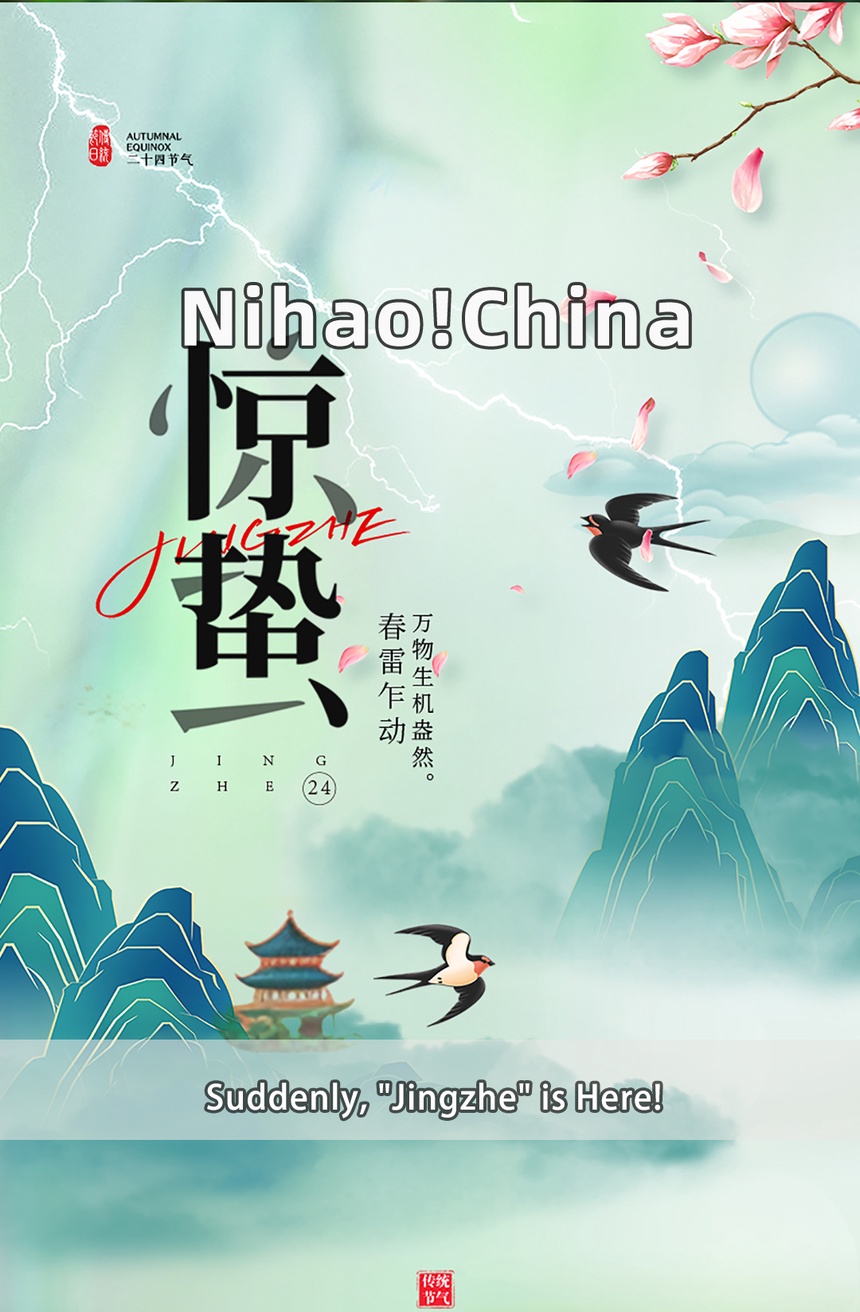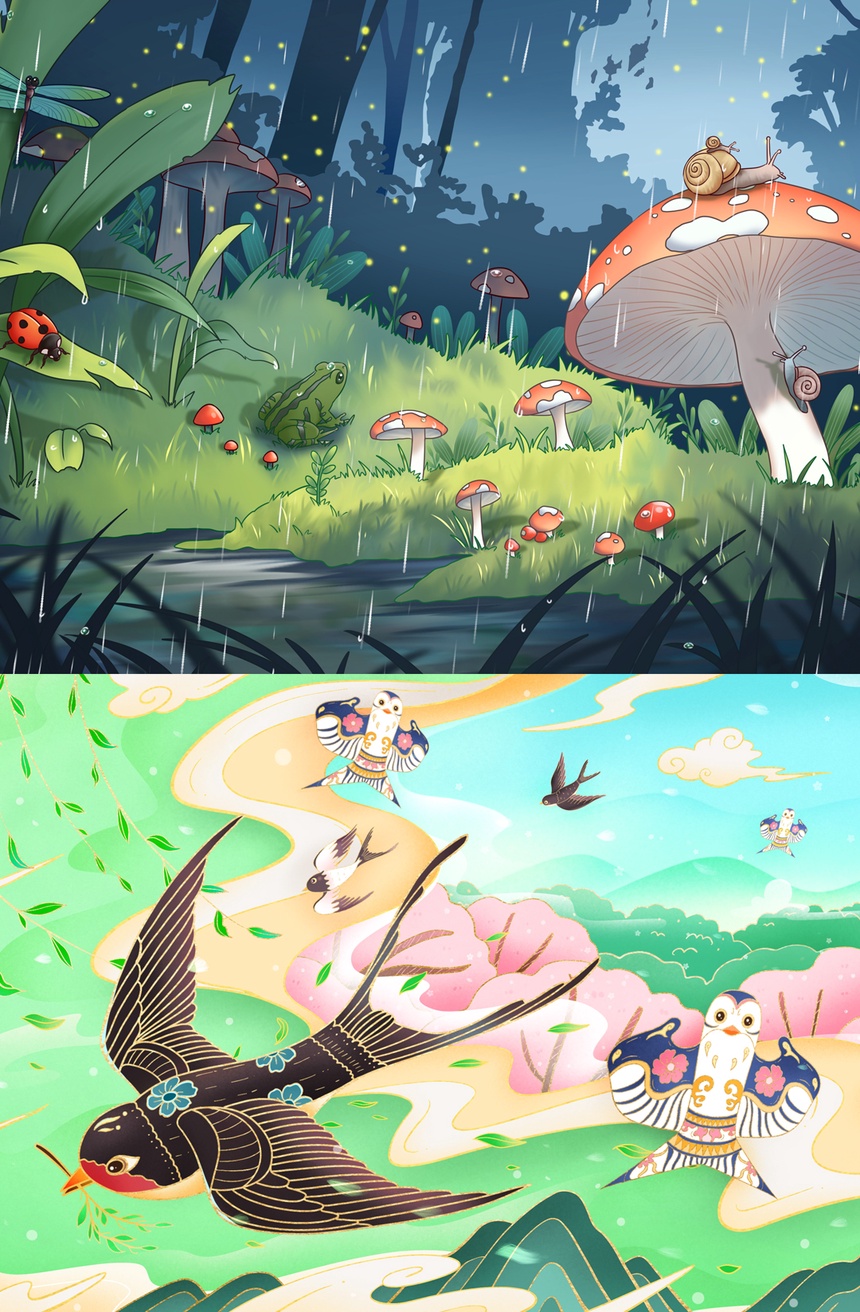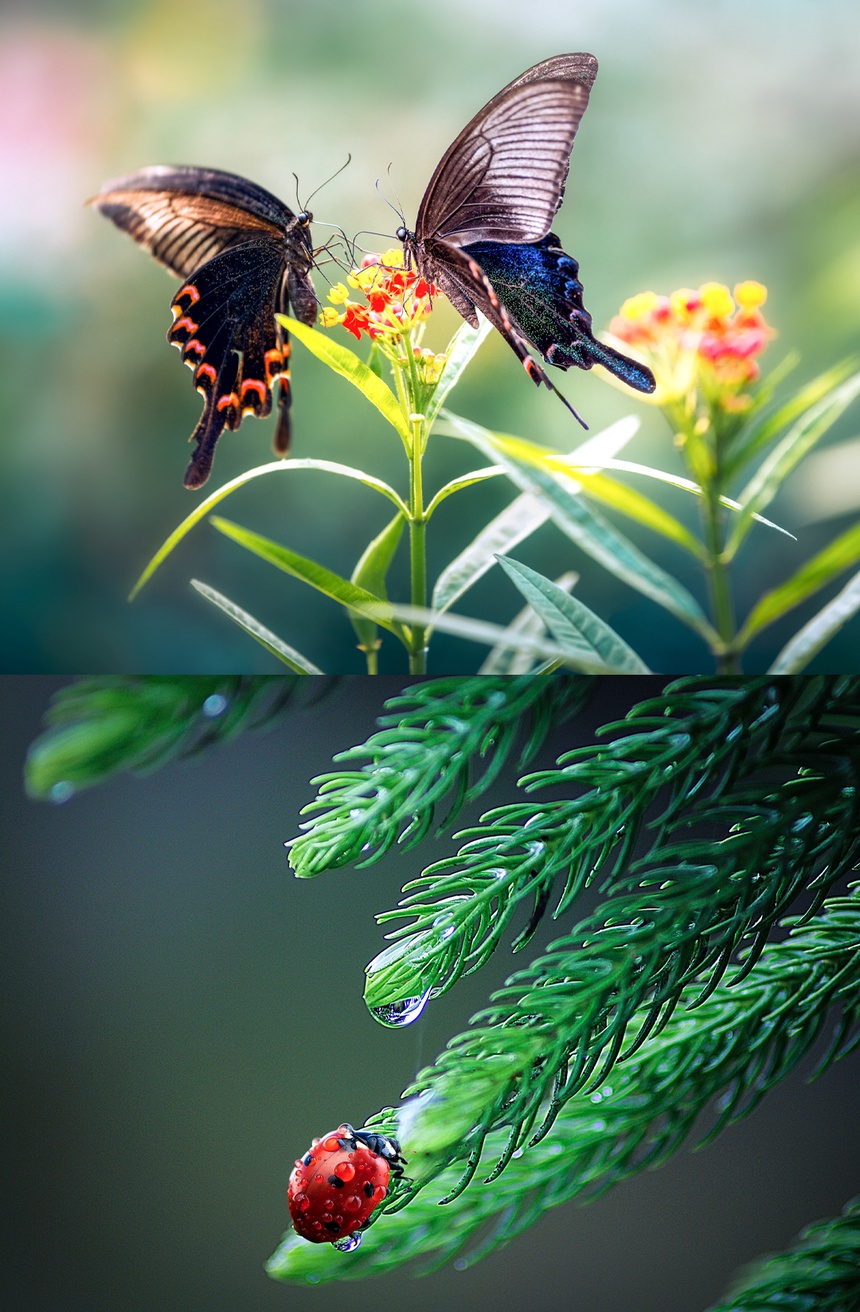 中传云资讯系统
中传云资讯系统【双语】你好!中国 | 转眼间,“惊蛰”已至!

惊蛰,又名“启蛰”,是二十四节气中的第三个节气。惊蛰反映的是自然生物受节律变化影响而出现萌发生长的现象。惊蛰春雷始鸣,惊醒了蛰伏于地下冬眠的昆虫。实际上,昆虫是听不到雷声,大地回春,天气变暖才使它们结束冬眠“惊而出走”。
Jingzhe, also known as "Awakening of Insects", is the third solar term in the twenty-four solar terms. Jingzhe reflects the phenomenon of the awakening and growth of natural organisms affected by rhythmic changes. With the arrival of Jingzhe, the spring thunder begins to rumble, awakening the insects hibernating underground. In reality, insects cannot hear thunder. It is the warming weather and the rejuvenation of the earth that end their hibernation and prompt them to emerge.

此前,动物入冬藏伏土中,不饮不食,称为“蛰”;到了“惊蛰节”,天上的春雷惊醒蛰居的动物,称为“惊”。故惊蛰时,蛰虫惊醒,天气转暖,渐有春雷,可见古人对“惊蛰”的描述还是相当有深意的。
Previously, animals would hibernate in the ground during winter without eating or drinking, known as "zhe". When Jingzhe arrives, the spring thunder wakes the hibernating animals, known as "jing". Therefore, during Jingzhe, hibernating creatures awaken, the weather warms, and spring thunder gradually appears. It is evident that the ancient descriptions of "Jingzhe" were quite meaningful.

在民间,有惊蛰吃梨的传统。关于吃梨,各地说法不一,苏北及山西一带流传,有“惊蛰吃了梨,一年都精神”的民谚。也有人说“梨”谐音“离”,据说,惊蛰吃梨可让虫害远离庄稼,可保全年的好收成。
In folklore, there is a tradition of eating pears during Jingzhe. Regarding the consumption of pears, different regions have different sayings. In areas like northern Jiangsu and Shanxi, there is a folk saying: "Eating pears during Jingzhe keeps one spirited throughout the year". Some also believe that since "li (pear)" sounds like "leave", eating pears during Jingzhe can keep pests away from crops, ensuring a good harvest throughout the year.